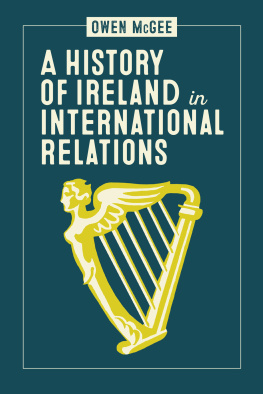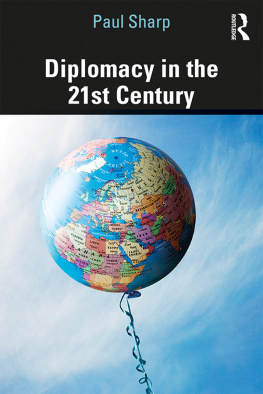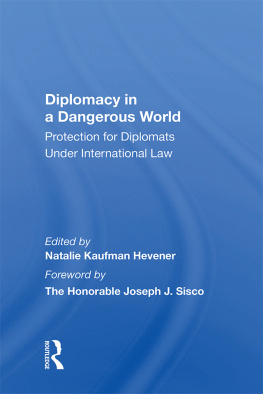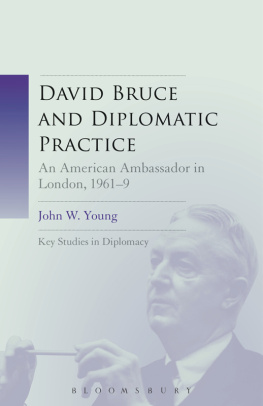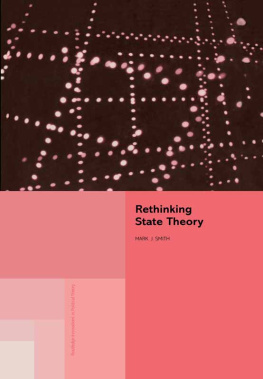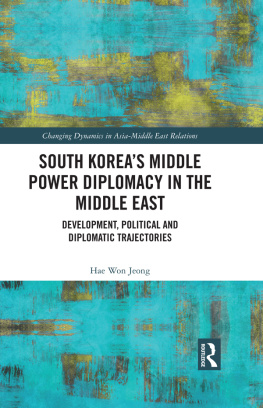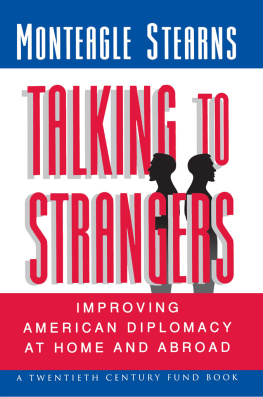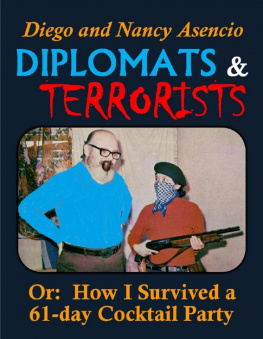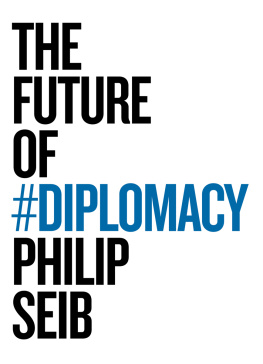THE CRAFT OF POLITICAL ANALYSIS FOR DIPLOMATS
ALSO BY RAYMOND F. SMITH
Negotiating with the Soviets (Indiana University Press, 1989)
ADST-DACOR DIPLOMATS AND DIPLOMACY SERIES
Series Editor: Margery Boichel Thompson
Since 1776, extraordinary men and women have represented the United States abroad under all sorts of circumstances. What they did and how and why they did it remain little known to their compatriots. In 1995 the Association for Diplomatic Studies and Training (ADST) and Diplomatic and Consular Officers, Retired, Inc. (DACOR) created the Diplomats and Diplomacy book series to increase public knowledge and appreciation of the involvement of American diplomats in world history. The series seeks to demystify diplomacy by telling the story of those who have conducted U.S. foreign relations, as they lived, influenced, and reported them. Raymond F. Smiths The Craft of Political Analysis for Diplomats, the forty-eighth volume in the series, illuminates the professionalism the best diplomats employ in serving their country.
OTHER TITLES IN THE SERIES
HERMAN J. COHEN, Intervening in Africa: Superpower Peacemaking in a Troubled Continent
BRANDON GROVE, Behind Embassy Walls: The Life and Times of an American Diplomat
PARKER T. HART, Saudi Arabia and the United States: Birth of a Security Partnership
EDMUND J. HULL, High-Value Target: Countering al Qaeda in Yemen
CAMERON R. HUME, Mission to Algiers: Diplomacy by Engagement
KEMPTON JENKINS, Cold War Saga
DENNIS KUX, The United States and Pakistan, 19472000: Disenchanted Allies
TERRY MCNAMARA, Escape with Honor: My Last Hours in Vietnam
WILLIAM B. MILAM, Bangladesh and Pakistan: Flirting with Failure in Muslim South Asia
ROBERT H. MILLER, Vietnam and Beyond: A Diplomats Cold War Education
RONALD E. NEUMANN, The Other War: Winning and Losing in Afghanistan
RICHARD B. PARKER, Uncle Sam in Barbary: A Diplomatic History
RALPH PEZZULLO, Plunging into Haiti: Clinton, Aristide, and the Defeat of Diplomacy
YALE RICHMOND, Practicing Public Diplomacy: A Cold War Odyssey
HOWARD B. SCHAFFER, The Limits of Influence: Americas Role in Kashmir
HOWARD R. SIMPSON, Bush Hat, Black Tie: Adventures of a Foreign Service Officer
JAMES STEPHENSON, Losing the Golden Hour: An Insiders View of Iraqs Reconstruction
ULRICH STRAUS, The Anguish of Surrender: Japanese POWs of World War II
THE CRAFT OF POLITICAL ANALYSIS FOR DIPLOMATS
RAYMOND F. SMITH
An ADST-DACOR Diplomats and Diplomacy Book

Copyright 2011 by Raymond F. Smith
Published in the United States by Potomac Books, Inc. All rights reserved. No part of this book may be reproduced in any manner whatsoever without written permission from the publisher, except in the case of brief quotations embodied in critical articles and reviews.
The opinions and characterizations in this book are those of the author and not necessarily those of the Association for Diplomatic Studies and Training, DACOR, or the Government of the United States.
Library of Congress Cataloging-in-Publication Data
Smith, Raymond F., 1941
The craft of political analysis for diplomats / Raymond F. Smith. 1st ed.
p. cm. (Adst-dacor diplomats and diplomacy series)
Includes bibliographical references and index.
ISBN 978-1-59797-729-6 (paperback: alk. paper)
ISBN 978-1-59797-730-2 (electronic edition)
1. DiplomacyMethodology. 2. Political scienceMethodology. 3. DiplomatsIn-service training. I. Title.
JZ1305.S62 2011
353.13270973dc22
2011013946
Printed in the United States of America on acid-free paper that meets the American National Standards Institute Z39-48 Standard.
Potomac Books
22841 Quicksilver Drive
Dulles, Virginia 20166
First Edition
10 9 8 7 6 5 4 3 2 1
To the men and women of the United States Foreign Service
and to their counterparts in other countries
CONTENTS
ACKNOWLEDGMENTS
I began this book for two reasons. First, I had some ideas on doing political analysis as a diplomat that I wanted to share with others. I spent a lot of my diplomatic career either doing political analysis or overseeing it, and I think that is the aspect of the profession that I was best at. Second, I think the public impression of the Foreign Service in particular and the diplomatic profession in general is rather negative. I hoped that providing some actual examples of Foreign Service political reporting, along with some background about how it is done, would contribute to a better understanding of at least this aspect of Foreign Service work. I have dedicated this book to the men and women of the United States Foreign Service, as well as to their colleagues in other countries, because they are trying to make things better and because their efforts are often unappreciated.
An abbreviated version of some of the ideas in this book, presented from the perspective of intelligence reform, appeared in the journal Intelligence and National Security (volume 24, December 2009) under the title Is It a Pearl or a Kidney Stone? Intelligence Reform and Embassy Reporting, from Moscow to Baghdad.
I had the benefit of comments and suggestions on an earlier draft from several former Foreign Service officers: Richard Combs, Mark Foulon, Jack Zetkulic, and an anonymous reader from the Association for Diplomatic Studies and Training. They helped to improve both the content and the tone of the final manuscript, although I am entirely responsible for the flaws that remain. I would like to thank ADST for accepting my manuscript into its publishing program and its editor, Margery Boichel Thompson, for her editorial suggestions, her help in placing this work with Potomac Books, and her positive outlook. My brother, Joseph Smith, who is a State Department information management officer, helped update my understanding of the Departments communication and distribution system and policies.
My wife, Ann Miller, is a good friend and a great partner. She makes my life better in many ways.
GLOSSARY OF COMMON STATE DEPARTMENT TERMS
Diplomacy, like most professions, has its share of acronyms and shorthand terms. Here are some of the common ones used by Department of State and Foreign Service personnel and in this book.
CIACentral Intelligence Agency.
Congenconsul general.
DASdeputy assistant secretary. However, the shorthand AS is never used to refer to assistant secretaries, probably because unless the speaker carefully controls sibilance, unfortunate connotations may ensue. A/S is often substituted in writing.
DCMdeputy chief of mission. The number-two-ranked person at an embassy. He or she is in charge of the embassywith the title charg daffaires ad interim, or a.i.when the ambassador is out of the country. The common shorthand for this is charg.
DIADefense Intelligence Agency.
Emboffembassy officer.
EXDISexclusive or executive distribution. This is a distribution designator placed on a document to restrict who may see it. It serves other uses as well, which are discussed in the text.
ICintelligence community.
IMFInternational Monetary Fund.
Next page

